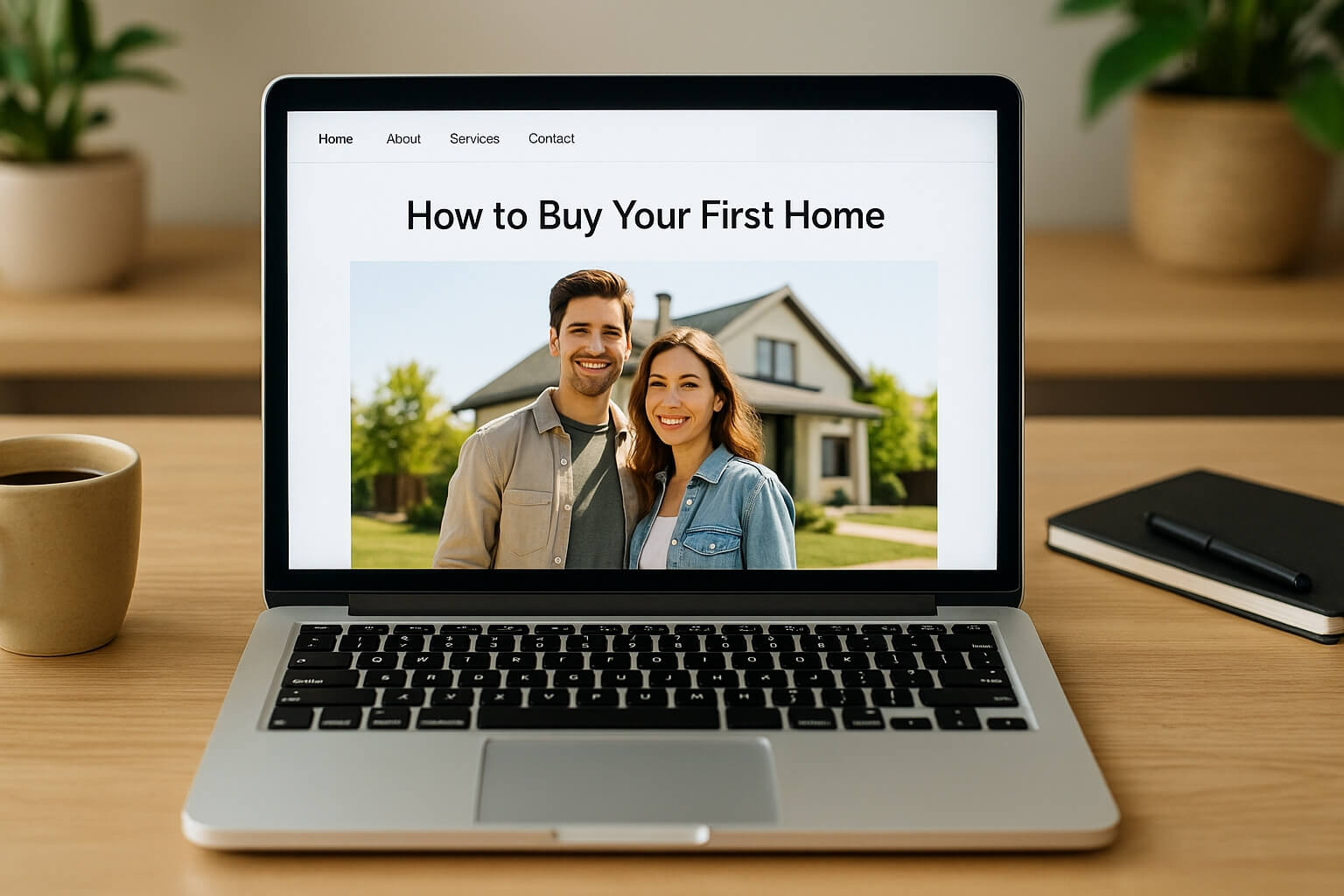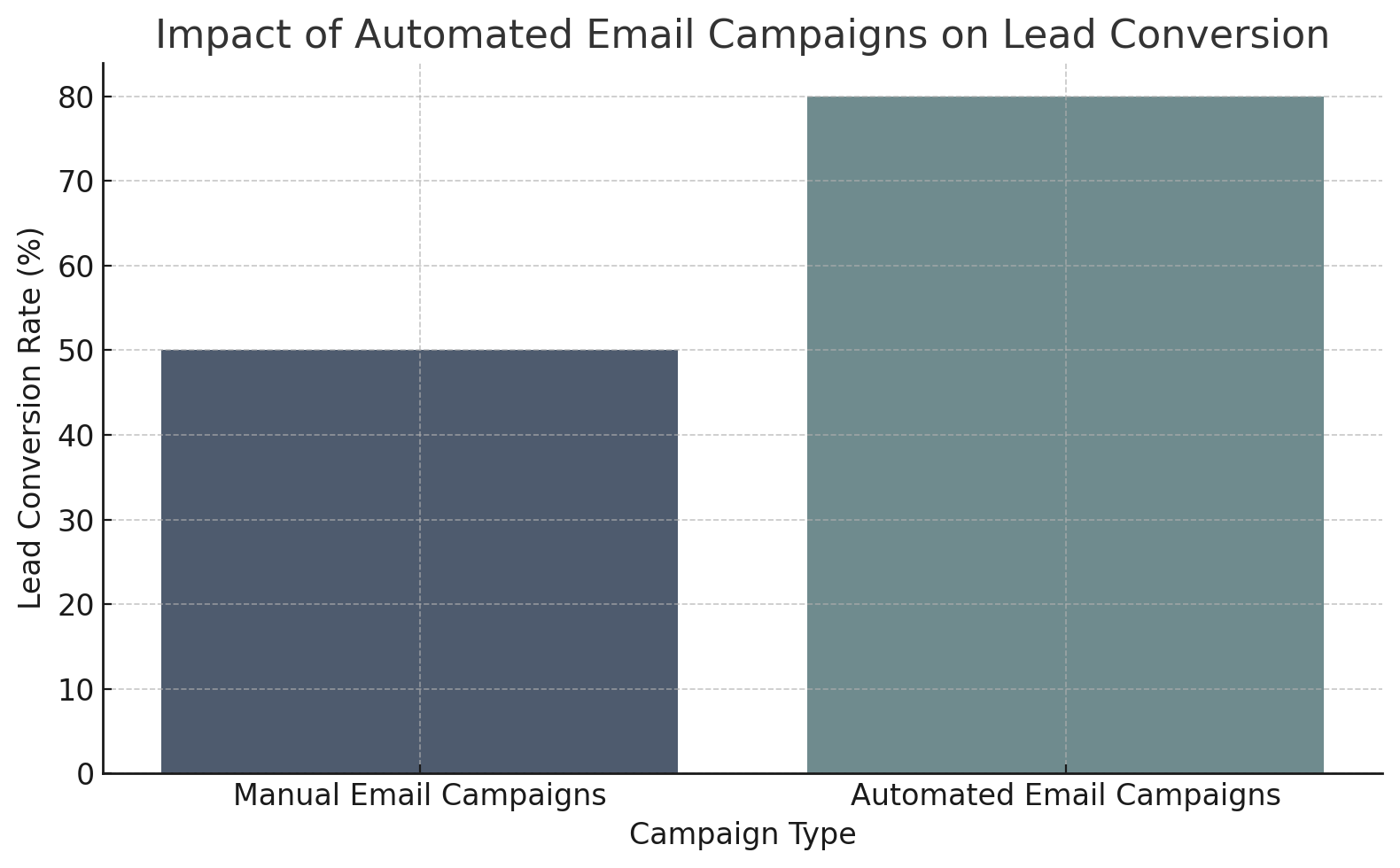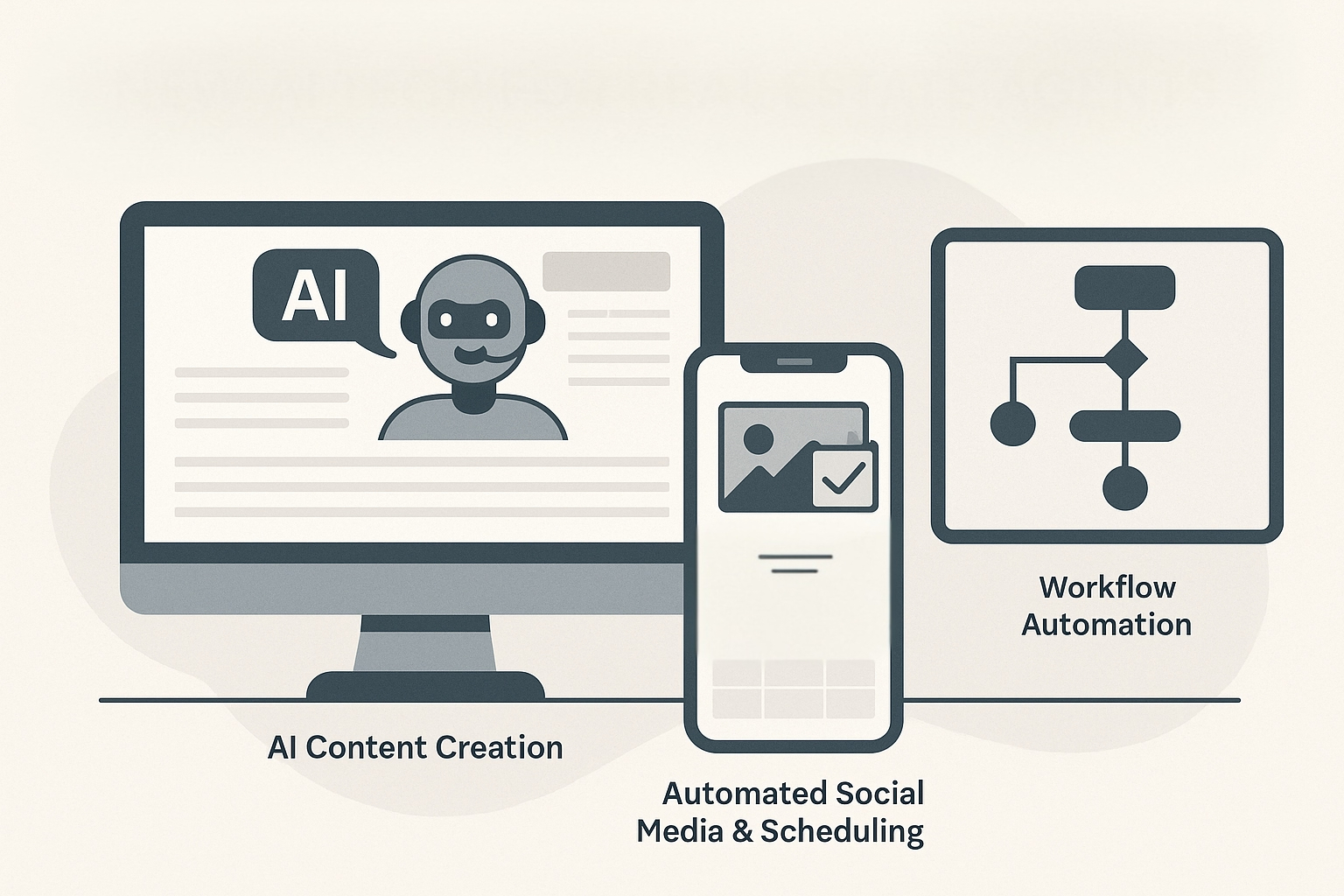
In today’s competitive real estate landscape, agents and brokers need innovative marketing to stand out. Traditional methods like cold-calling and door-knocking alone just don’t cut it anymore. Most buyers and sellers now begin their agent search online - in fact, 73% of buyers (and 68% of sellers) research agents online before ever reaching out. This shift means mastering digital marketing is essential if you want to grow your client base and acquire more listings.
Effective marketing not only brings in leads but also boosts your bottom line. Effective advertising can help you get more clients as a real estate agent or mortgage professional, and yes, you can make good money when marketing is done right. Your online presence is especially critical for how real estate agents get listings in 2025. Whether you’re new to the industry or an experienced professional aiming to level up, the key is to embrace modern, mainly digital marketing strategies that deliver value to prospects.
Table of Contents
- Build a Lead-Optimized Website
- Create Valuable Content
- Leverage Social Media Marketing
- Use Video Marketing & Virtual Tours
- Host Webinars and Virtual Events
- Nurture Leads with Email Marketing
- Invest in Paid Advertising Platforms
- Embrace AI and Automation Tools
- Frequently Asked Questions
1. Build a Lead-Optimized Website
Your website is the digital foundation of your business, it’s often the first impression potential clients get. A professional, lead-optimized website can generate inquiries 24/7 and is a cornerstone of inbound marketing lead generation. Make sure your site is mobile-friendly, fast-loading, and showcases your brand.
Key features of an effective real estate website:
- IDX Property Search: Allow visitors to search listings with lead capture prompts for viewing details.
- Neighborhood Guides and Blog: Publish local market updates, buying/selling tips, and community info to attract organic traffic via SEO.
- Contact and Lead Forms: Use easy forms or chat widgets on every page for visitors to request info or schedule calls. Integrate these with your CRM for immediate follow-up.
Remember, 96% of home buyers search for their dream home online, so your website needs to be easily discoverable and provide real value. For SEO tips on optimizing your real estate website, check out this guide by Moz to boost your site's visibility and performance.
2. Create Valuable Content
Content marketing is a powerful inbound marketing strategy for real estate agents and mortgage professionals. By creating valuable, informative content, you attract prospects to come to you (rather than you chasing them) and establish yourself as a local expert. This approach aligns with how consumer behavior has changed, modern buyers prefer to gain clarity and confidence through research and education upfront, rather than respond to unsolicited sales calls. In fact, the professionals winning market share in 2025 are educating prospects before they ever sell to them, building trust at scale, and running automated follow-up systems - instead of relying solely on cold outreach.
Start a blog on your website and publish articles that answer questions people are asking, this improves your SEO and shows off your expertise. When you provide honest insights, you build trust with readers.
Ideas for high-impact real estate blog content:
- “How-To” Guides: e.g. How to Buy Your First Home.
- Local Market Updates: Share monthly housing stats in your area or neighborhood spotlights.
- Industry Insights: Discuss trends like interest rate changes, new real estate laws, or technologies.

Over time, as your content library grows, you’ll attract more organic traffic and inbound leads. Plus, you can repurpose your blog content into social media snippets, videos, or email newsletters, amplifying its reach across channels.
For more information, read our guide on getting real estate leads in 2025.
3. Leverage Social Media Marketing
An active social media presence is a must for modern agents and brokers. Social media marketing allows you to reach new audiences, showcase your personality, and stay top-of-mind with your sphere. In fact, 82% of real estate businesses use social media for marketing, and 71% of buyers say they are more likely to work with agents who have a strong social media presence. Start by focusing on the platforms your target clients use most - often Facebook and Instagram to reach local home buyers/sellers, with LinkedIn for professional networking or TikTok for younger audiences.
Consistency is key: post regularly and engage with your followers. To save time, consider using scheduling tools or services that offer automated real estate social media posts. These allow you to plan content in advance or even automatically post market stats, home tips, or mortgage social media posts on a set schedule.
Tips for social media success:
- Provide Value: Follow the 80/20 rule - 80% of your posts should inform or entertain and at most 20% directly promote your services or listings.
- Use Video & Stories: Video content is highly shareable - social posts with video get 48% more views and far more shares.
- Engage with Your Audience: Respond to comments and messages promptly. Social media is a two-way street - the more you interact and show personality, the more people feel connected to you. This builds trust and keeps you top-of-mind.
Also, don’t be afraid to inject your personal life or hobbies occasionally too; people hire people they like, and showing you’re a relatable human can differentiate you in a crowded market.
4. Use Video Marketing & Virtual Tours
In real estate marketing, video is one of the most powerful tools at your disposal. From home tour videos to informational reels, multimedia content can dramatically boost engagement and lead generation.
There are many ways to leverage video:
- Property Tour Videos: Instead of just static photos, create a video walkthrough of your listings. Post these on YouTube, as well as on Facebook and Instagram.
- Agent Introduction & FAQ Videos: Film a short video introducing yourself and what makes you different, or answering common real estate questions.
- Client Testimonials on Video: If a client is thrilled with your service, ask if they’d share their experience in a quick video.
By showcasing properties and your expertise through video, you engage clients more deeply and set yourself apart as a tech-savvy, proactive marketer.
5. Host Webinars and Virtual Events
Hosting an educational real estate webinar is an excellent way to generate high-intent leads. Webinars allow you to share valuable information with dozens of potential clients at once, building trust and credibility at scale. By offering a free webinar on a hot topic, you can attract buyers or sellers who are actively looking for guidance and thus more likely to become clients.
Choose a topic that addresses a real need or curiosity in your market. Promote the webinar through your social media, email list, and local online groups. Attendees will sign up via a registration page and then join you live on the event day, typically via Zoom or another webinar platform.
During the webinar, deliver actionable advice and establish yourself as an expert advisor rather than a salesperson. Incorporate interactive elements like Q&A to keep it engaging. Most importantly, end with a clear call-to-action. This smoothly moves your prospects from the webinar into your client funnel.
The real magic is in the webinar funnel that follows. Many attendees won’t be ready to hire you on the spot, so your automated follow-up is crucial. Send a thank-you email right after with a replay link. A day or two later, send another email answering common questions or addressing any objections. Then a few days after, send a gentle nudge about your offer. These sequential touches, which you can set up in advance via your CRM or email software, greatly increase the chances that webinar attendees convert into actual appointments.
Hosting webinars positions you as a helpful expert and can attract serious prospects. Only truly interested people will spend 30-60 minutes attending an online seminar about real estate, so you know those leads are fairly warm. Done right, webinars can become a consistent engine of inbound leads for your business, and a way to differentiate yourself in the market by providing value first.
For more on hosting successful webinars, check out our blog on everything you need to know before hosting a real estate webinar.
6. Nurture Leads with Email Marketing
Email marketing remains one of the highest-ROI channels for nurturing real estate prospects over the long term. If you’re not already building an email list of potential clients, start now. Then, set up drip email campaigns to stay in touch and gradually convert those leads into active clients. Automated email campaigns increase lead conversion by 30%, likely because you are consistently providing value and keeping yourself top-of-mind as people move toward a buying or selling decision.

Here’s how you can leverage email effectively:
- Monthly Newsletter: Send a helpful newsletter to your contacts with local market updates, new listings or open houses, homeownership tips, and even a personal note or neighborhood event spotlight.
- New Lead Drip Sequence: When someone enters your funnel, have an automated sequence ready. The idea is to nurture them with information and proof of your value.
- Personal Touches: Don’t underestimate the power of a simple personal email. If you notice a lead browsing certain listings repeatedly on your site, shoot them a quick note offering more info on that property.
The key is consistency and automation. You want to stay in regular contact without manually writing every email. By delivering useful content to someone’s inbox, you nurture trust over time. So when that lead is finally ready to move forward, you’re the agent they feel comfortable with and think of first.
7. Invest in Paid Advertising Platforms
Sometimes, to jumpstart your lead flow, it pays (literally) to invest in paid ads. Online advertising lets you target your ideal audience and generate leads at scale, if done strategically. The top channels for real estate are Meta ads and Google Ads. Each has its strengths:
Meta Ads: These social platforms excel at demographic and interest-based targeting. You can run ads promoting a free home valuation, a webinar, a new listing, or even a simple helpful guide. With Meta’s ads, you can zero in on people by location, age, income, homeownership status, interests. Facebook’s algorithm is highly advanced and finds interested users quickly. Plus, setting up ads is user-friendly. Often the cost per click on Facebook is lower than on Google in real estate, meaning you can reach a wide audience without breaking the bank.
Google Ads: With Google search ads, you capture people actively searching for real estate services, these leads often have high intent. The benefit is you’re reaching prospects at the exact moment they need an agent or are looking for properties. The downside is Google Ads can be competitive and a bit complex to optimize. Focus on long-tail, specific keywords to get more qualified clicks. Ensure the ad directs to a relevant landing page - if your ad is about a home value report for sellers, don’t send them to your general homepage, send them to a page about your home valuation offer.
Whichever platform you use, approach advertising with a plan. Set a monthly budget you’re comfortable with and test small at first. Track your results meticulously, that way you can double down on what works and cut what doesn’t. Our own guide on the best advertising platforms for real estate agents and mortgage brokers goes in-depth on how to maximize ROI on each channel and avoid common pitfalls.
8. Embrace AI and Automation Tools
The year 2025 has brought an explosion of new tech for real estate, and smart agents and brokers are leveraging AI and automation tools to work more efficiently. You don’t need to be a tech wizard to benefit from AI, many tools are plug-and-play and can save you hours while improving your marketing effectiveness.
For real estate professionals, here are a few ways to put it to use:
- AI Content Creation: Writer’s block for that new listing description or blog post? AI writing assistants like ChatGPT can help draft content in seconds.
- Automated Social Media & Scheduling: Tools like Buffer, Hootsuite, or Later have incorporated AI features that suggest optimal posting times or even content.
- Workflow Automation: Beyond AI, even simpler automation tools can streamline your work. This ensures no lead or client falls through the cracks in your process.

By adopting some of these real estate tools and technologies, you can do more in less time. You’ll appear ultra-responsive (even when you’re busy) and maintain consistent outreach, which means more leads and better client service.
By implementing these real estate marketing ideas, you’ll be positioning yourself to attract more clients and listings even as the industry evolves. Start with a few that make the most sense for your business right now, and build from there. With consistency and creativity, you’ll find that marketing isn’t just an expense or a chore, it’s an investment in the growth and longevity of your real estate career.
9. Frequently Asked Questions
Q: What are the best tools for real estate agents to generate leads?
A: The “best” tools depend on your strategy and comfort, but usually it’s a combination of a robust CRM + marketing automation, a solid website/IDX, and savvy use of social media and ads. Finding the mix that works for you may take experimentation. Keep in mind, technology is there to enhance your personal touch, not replace it, but agents who effectively use these tools often have a huge advantage in capturing, tracking, and converting leads efficiently.
Q: What is a webinar funnel in real estate?
A: A webinar funnel is a marketing strategy that uses a webinar to capture and nurture real estate leads through a step-by-step process. Real estate professionals use it because it’s efficient, you might get 50 people in a virtual room at once, which would take many weeks of individual meetings to educate one-by-one. And since the webinar is free and helpful, prospects come willingly. By the time you speak individually, they already trust you and feel like they know you. It’s a strategy that turns the typical sales approach on its head: you give value first, and clients come to you rather than you chasing them.








